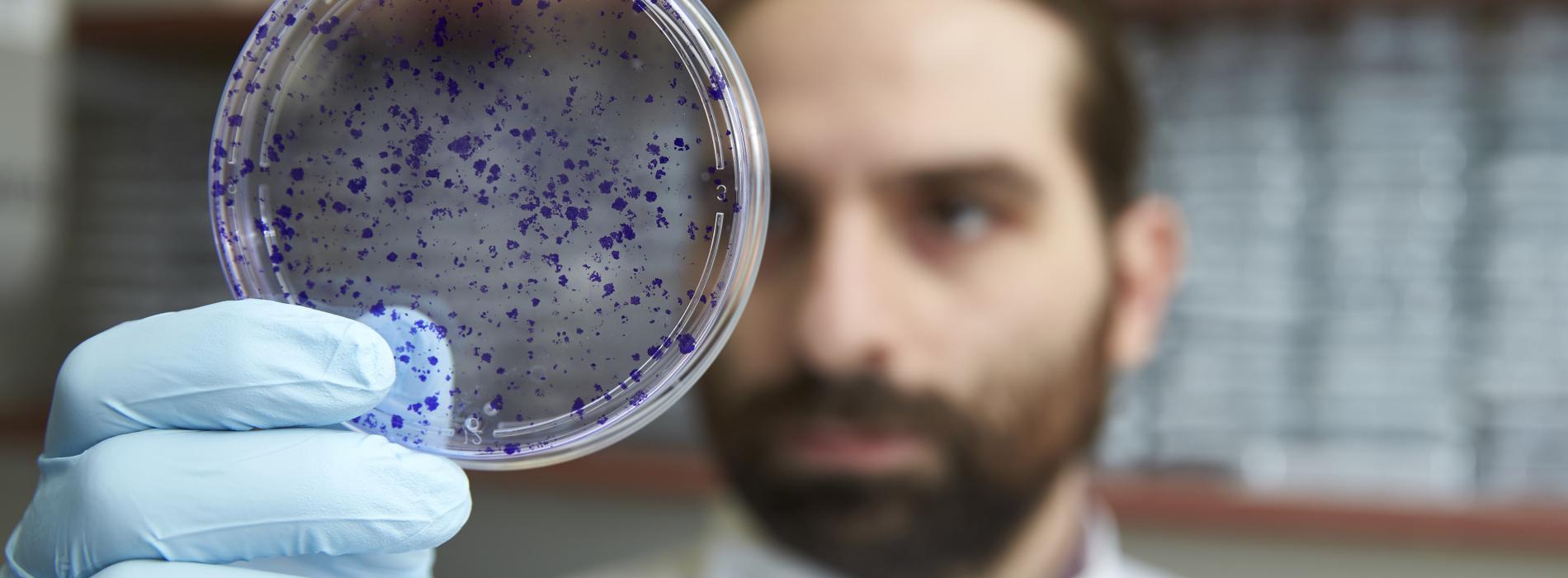UHB Charity is proud to support a variety of research projects that are being undertaken at the hospital to increase understanding of skin cancers, and developing new and effective ways to fight skin cancer.
When a patient has been diagnosed with melanoma (a type of skin cancer) that has spread to other parts of the body, the skin cancer team at the hospital use immunotherapy treatments to fight the cancer. Immunotherapy uses drugs to induce and encourage the patient’s own immune system to fight the melanoma. There are two types of drugs used as part of this immunotherapy, the first (Anti CTLA-4 drugs) help to switch on the immune system and the second (anti PDL1 drugs) encourage the immune system to work faster.
It has been proven that the immunotherapy drugs that are used can have an effect on the immune system, helping it to fight the melanoma, but there are side effects to these drugs, especially when used together. UHB Charity is proud to support the work of the skin cancer team as they research these drugs to learn more about them and how they work.
The skin cancer team are looking into a different approach that could be used for patients with melanoma which is called targeted treatment. This targets the cancerous mutation within the patient’s melanoma which causes the melanoma to grow out of control. Once targeted, the drugs effectively switch off the mutation, so that the cancerous cells can no longer grow.
The research being undertaken by the skin cancer team will help to determine which of the two approached should be used first. The database of information that they compile will help to inform decisions about which treatments future patients should receive, and in which order.
UHB Charity has funded a trial co-ordinator, Shashi Rana, who manages the data and enables the team to spot patterns that increase understanding about the different types of treatment, and the most effective ways to manage side effects.
UHB Charity has enabled the skin cancer team to conduct trials into some of the many other forms of skin cancer where there is less understanding of the most effective treatments. The trials aim to ease the burden of treatments on patients, whilst still fighting the cancer and improving the patient’s quality of life and life expectancy. The trials allow for a better understanding of treatments, allow combination treatments to be explored and give patients more treatment options when standard treatments have failed.
These trials include research into imiquimod cream to treat early forms of skin cancer and trials looking into the treatment of rare skin cancers such as Merkel cell cancer. The team hope to continue their trials into the future and have many ideas that will help them to increase their understanding of skin cancers, improving treatment methods and, ultimately, improving the survival rates for skin cancers.
Head of Fundraising at UHB Charity, Justine Davy, said: “The Charity is delighted to be able to support the valuable work of the skin cancer team at the hospital. The trials that they are conducting will make a huge difference to patients’ lives, and an increased understanding of skin cancers will help patients not just at QEHB, but far beyond.”
You can support the work of the skin cancer team by donating at hospitalcharity.org/donate.



